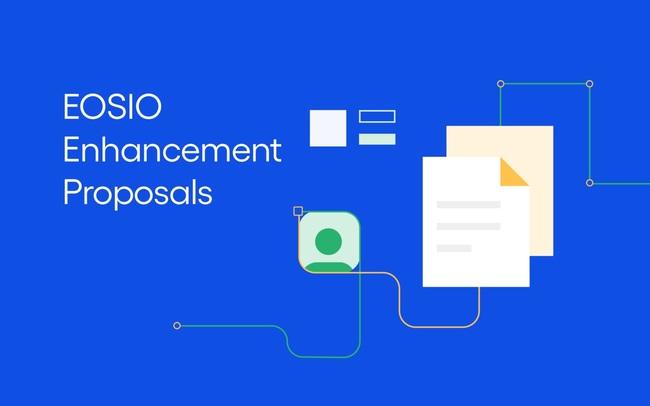Consider utilizing a reputable exchange such as Easy Crypto or Independent Reserve to acquire your first coins. Both platforms offer user-friendly interfaces and competitive fees, making the process straightforward for both novices and experienced traders. Before proceeding, ensure you have completed any necessary identity verification to comply with local regulations.
Next, establish a secure wallet to safeguard your assets. Hardware wallets like Trezor or Ledger provide enhanced protection against online threats. Always enable two-factor authentication on any accounts associated with your transactions. This step significantly reduces the risk of unauthorized access.
Stay informed about the legal framework governing virtual currencies in your country. Understanding your tax obligations and local laws helps you avoid potential pitfalls. The New Zealand tax authority has clear guidelines about reporting income earned from trading, so keeping accurate records will simplify this aspect of your investment.
Choosing a Reliable Cryptocurrency Exchange
Select exchanges that prioritize security by looking for features such as two-factor authentication (2FA), cold storage for funds, and a transparent security protocol. Research the exchange’s history for any past breaches or issues and check user reviews for reliability.
Key Factors to Evaluate
| Factor | What to Look For |
|---|---|
| Regulation | Ensure the platform complies with local laws and has necessary licenses. |
| Fees | Understand trading, withdrawal, and deposit fees; compare with other exchanges. |
| Supported Coins | Verify the selection of cryptocurrencies available for trading. |
| User Experience | Assess the interface’s ease of use, including mobile accessibility. |
| Customer Support | Check availability of support channels and response times. |
Reputation and Trustworthiness
Examine the exchange’s track record and online presence. Exchanges with a strong community and transparency in operations tend to build trust. Avoid platforms with a history of excessive downtime or unresolved user complaints.
Setting Up Your New Zealand Bank Account for Purchases
Choose a financial institution that offers competitive fees and a user-friendly online banking platform. Many Kiwis opt for banks like ASB, ANZ, or Westpac due to their comprehensive services and accessibility. Open a transaction account, which typically has lower fees compared to other types of accounts.
Verification Requirements
Gather the necessary documents for account setup, including proof of identity (passport or driver’s license) and proof of address (utility bill or bank statement). Ensure all documents are current, as outdated information may lead to delays.
Linking Your Account
Once the account is active, link it to your preferred trading platform for swift transfers. Verify that the platform accepts payments from New Zealand banks; this will prevent any unnecessary charges or transfer complications. Consider using services that allow instant fund transfers to expedite transactions.
Understanding Bitcoin Purchase Fees in New Zealand
To optimize expenses during your acquisition of cryptocurrency, prioritize exchanges that offer lower transaction fees. Typically, these costs can range from 0.1% to 1% per transaction, depending on the platform used. For those new to purchasing, researching various exchanges is beneficial, as they often have differing fee structures.
Types of Fees
When engaging with a trading platform, be aware of several key fee types. The most common is the trading fee, deducted on each trade. Additionally, there may be deposit or withdrawal fees tied to funding your account or moving funds to your wallet. Some platforms also impose spreads, which represent the difference between the buying and selling price. Analyzing these fees ahead of time will aid in informed financial choices.
Price Impact
Transaction fees can significantly influence your overall cost. For regular investors, these can accumulate over time, affecting profitability. Therefore, consider utilizing platforms offering zero trading fees for promotional periods or subscribe to those with monthly memberships providing reduced rates. Also, aiming for larger transactions may yield lower relative costs, making it advantageous from a financial perspective.
Securing Your Bitcoin: Wallet Options Explained
Opt for a hardware wallet like Ledger or Trezor for superior security. These devices store keys offline, reducing exposure to online threats.
- Hardware Wallets: Best for long-term storage. Examples include:
- Ledger Nano S
- Ledger Nano X
- Trezor Model One
- Trezor Model T
- Software Wallets: Offer convenience for daily transactions. Choose reliable options like:
- Exodus
- Electrum
- Mycelium
- Mobile Wallets: Suitable for on-the-go access. Consider:
- Trust Wallet
- Coinomi
- Atomic Wallet
- Web Wallets: Easy to use but less secure. Use trusted exchanges like:
- Coinbase
- Binance
Always enable two-factor authentication and keep backups of your recovery phrases. Regularly update your wallet software to guard against vulnerabilities.
For maximum protection, combine different wallet types. Use a hardware wallet for long-term holdings and a mobile or software option for daily expenditures.
Evaluate the security measures of each wallet and choose one that aligns with your needs while minimizing risks.
Navigating Tax Obligations for Bitcoin Transactions
Individuals engaging in cryptocurrency transactions must report profits as capital gains and losses. Maintain precise records of all digital asset transactions, including dates, amounts, and exchange rates at the time of transactions. This data is critical for accurate tax submissions.
Tax Rates and Reporting
Capital gains tax applies to profits exceeding the tax-free threshold. For personal investments, the tax rate aligns with your income bracket. Report your income through the annual tax return process, ensuring all cryptocurrency-related activities are clearly documented.
Deductions and Losses
If you experience losses from trading cryptocurrencies, these can offset gains. Keep detailed documentation to support your claims. You may also consider deducting transaction fees or costs related to acquiring the assets, enhancing your potential tax position.
Staying Informed on Market Trends and Regulations
Monitor reliable sources such as industry news websites, financial reports, and market analysis platforms to stay updated on price fluctuations and trends. Websites like CoinDesk and CoinTelegraph provide insights on cryptocurrency movements and expert opinions.
Subscribe to newsletters and alerts from local cryptocurrency exchanges to receive updates regarding market changes and regulatory shifts specific to your area. This is crucial for understanding how policy changes may impact trading practices.
Engage with online communities via forums and social media platforms like Reddit or Twitter, where enthusiasts and analysts share real-time information and insights on market behavior.
Familiarize yourself with the regulatory environment by visiting the Financial Markets Authority (FMA) website. Track developments concerning laws that affect cryptocurrency trading, such as taxation policies and anti-money laundering regulations.
Utilize market analysis tools that offer technical indicators. Tools like TradingView can help in analyzing historical price data and suggest potential future trends based on past performance.
Attend local meetups or webinars to connect with experts and gather firsthand knowledge about market developments and regulatory issues from professionals in the space.
Consider setting up price alerts on your trading platform to get notified of significant market movements, which will aid in making informed decisions quickly.
Q&A: How to buy bitcoin in new zealand
Can New Zealanders use a local crypto exchange to buy btc directly with nzd via bank transfer?
Yes, several regulated exchanges in NZ support deposits from New Zealand bank accounts, letting users fund wallets with new zealand dollar and complete a way to buy bitcoin that feels like any ordinary online banking payment.
Does using a credit or debit card remain a quick way to buy bitcoin for users in New Zealand’s crypto market?
Card gateways on the best new zealand crypto exchanges process instant purchases, so you can buy bitcoin using a debit card or bank card and lock the current price of bitcoin in seconds.
Are there many bitcoin atms in New Zealand and how do they compare to online platforms to buy btc?
A handful of kiosks in Auckland and Wellington let you insert cash, but fees are higher than most exchanges operating in new zealand, so ATMs suit small, anonymous buys rather than big trades.
Which platforms make it easiest to buy and sell bitcoin plus bitcoin cash and other cryptocurrencies in new zealand?
Top-rated sites like EasyCrypto and Swyftx rank high for locals wanting to trade bitcoin or buy and sell cryptocurrencies, thanks to simple interfaces, fiat currencies support, and local compliance.
How can newcomers evaluate the price of bitcoin in nzd before deciding how much bitcoin or other cryptocurrencies to purchase?
Most dashboards display a live btc quote in New Zealand dollars, letting you calculate how much bitcoin you can afford and plan dollar-cost averaging strategies.
What is the most secure way to buy and then keep your bitcoin safe after purchase?
Always withdraw from the crypto exchange to a self-custody crypto wallet and enable hardware-based signing; this removes counter-party risk while you monitor your assets on-chain.
Can users rely on bank transfer or Apple Pay ✔️ as instant payment methods to buy bitcoin on leading NZ platforms?
Yes, real-time rails like POLi and Apple Pay top-ups give you fast settlement, making them some of the quickest ways to buy and avoid price slippage.
Do exchanges let users buy bitcoin using cash deposited at convenience stores in NZ?
Few services partner with Pay-in-Store agents, but those that do enable walk-in cash payments converted to digital currencies, expanding access beyond traditional online banking.
How do crypto exchange in New Zealand services comply with local AML rules while still offering a broad crypto world catalogue?
They implement KYC checks, report to the FMA, and only list assets that meet due-diligence standards, ensuring users in new zealand can buy cryptocurrencies under a clear regulatory framework.
Why might seasoned investors still follow related articles about bitcoin and real-time bitcoin mining metrics before each buy or sell decision?
Ongoing research helps gauge network health, market price trends, and macro events so you can time entries, rebalance exposure, or simply confirm that Bitcoin remains “the best cryptocurrency” for long-term holding.






